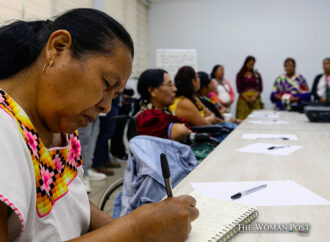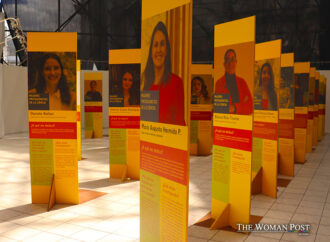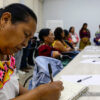Only 1 in 4 parliamentarians is a woman. The UN urges strengthening women's participation in politics.
Last year, women were represented for the first time in history in all parliaments around the world. However, only 1 in 4 congress members are women. In other words, at this rate, it will take 155 years for women to close the gender gap in politic sphere.
Therefore, the High Commissioner for Human Rights, Volker Türk, recently called on UN member countries to accelerate women's participation in the political arena, as their political underrepresentation leads to marginalization in various aspects of their lives.
Read more content like this at: thewomanpost.com
It is a form of gender-based violence in the public and political sphere that must be eliminated, emphasized Türk during the annual debate on women's fundamental rights.
"Parity cannot wait. Participation is not only about the right to be heard but also about societies' ability to find solutions to the most pressing crises facing the world today," said the official.
Türk called for an end to these phenomena through education and awareness campaigns, recognition and redistribution of care work disproportionately shouldered by women, and the establishment of codes of conduct to address harassment of women in politics and on the internet.
"From advocating for health and sexual and reproductive rights to ending violence. From fighting climate change to access to education, and including equal pay for equal work," stated Volker Türk regarding women who have been at the forefront of public institutions, and he pointed out that, "If we want to dismantle patriarchy, we have to dismantle these barriers."
You can also read Women`s Ministries: How Much Have You Achieved in Latin America And The World
One of these barriers is gender-based violence against women human rights defenders, journalists, and female officials who, by participating in decision-making, are attacked by those who view them as challenging family, gender, or societal traditions. These women become victims of sexist, sexualized, and misogynistic attacks that aim to silence them. "Their purpose is clear: to exert control, perpetuate subordination, and crush political activism and aspirations."
These types of attacks are fueled by widespread structural discrimination and deeply entrenched gender stereotypes in our norms and social behaviors. This creates imbalances that are reflected in the fact that over two-thirds of the world's illiterate population is female, and women bear three-quarters of the global burden of domestic and care work.
Physical and Psychological Violence
A recent UN Women study conducted in 39 countries revealed that 81.8% of the women surveyed in parliaments have experienced psychological violence; 44.4% faced death threats, rape, beatings, and kidnappings; and 25.5% have experienced physical violence.
Another recent investigation by UNESCO estimates that 73% of women journalists have experienced online violence, including through fake news or manipulated images, direct verbal threats, and attacks.
For Türk, this calls for a profound systemic change, in which national legal frameworks are strengthened to protect women from violence, both online and offline. "Prevention is fundamental. We must adopt codes of conduct with zero tolerance for gender-based violence and establish effective reporting mechanisms for those who experience it."
Other Measures
In addition to the establishment of quotas in the political sphere, it is necessary to create awareness campaigns to promote women's participation and develop capacities to increase their electoral capacity.
This entails creating economic incentives, social protection measures, and campaigns to promote a more equitable distribution of domestic and care work.
The Importance of Education
Women and girls not only need equal access to secondary and tertiary education but also need to gain space in sectors traditionally dominated by men, such as science, technology, engineering, and mathematics.
According to the UN, this involves creating curricula that include women as role models and highlighting their contributions. Another goal is to reduce the digital gender gap, as gender disparity in online access is increasing. "Globally, women now outnumber male non-internet users by 18%, compared to 11% in 2019."
























Leave a Comment
Your email address will not be published. Required fields are marked with *